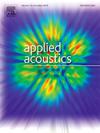噪音、性和金钱激励对复杂问题解决的相互作用
IF 3.4
2区 物理与天体物理
Q1 ACOUSTICS
引用次数: 0
摘要
本研究的目的是调查宽带噪声,作为模拟现实世界的工作场所噪声,如何影响复杂问题解决的表现(即动态决策),以及金钱激励和性别是否会缓和这种影响。48名平均年龄为24.52岁(SD = 4.16)的参与者(一半为女性)在连续三天内完成了一系列动态决策任务。采用基于计算机的仿真方法,将净水厂作为动态决策任务。独立变量是噪声(环境噪声vs. 75 dBA宽带白噪声)和货币激励(低vs.高,通过绩效配额方案的存在来操纵)。结果显示,在环境噪音中,雄性的表现优于雌性;而在宽带噪声中,这种性别差异并不明显。噪音和金钱激励之间没有相互作用。这些发现强调了宽带(白)噪声对个人表现的不同影响,以及对抗这种影响的激励机制的有限力量。本文章由计算机程序翻译,如有差异,请以英文原文为准。
The interaction between noise, sex and monetary incentives on complex problem solving
The aim of this study was to investigate how broadband noise, as a simulated real-world workplace noise, affects complex problem solving performance (i.e., dynamic decision-making), and whether monetary incentives and sex moderate the effect. Forty-eight participants (half females) with an average age of 24.52 years (SD = 4.16) completed a series of dynamic decision-making tasks over three consecutive days. A computer-based simulation, Water Purification Plant was used as the dynamic decision-making task. Independent variables were Noise (ambient vs. 75 dBA broadband white noise) and Monetary Incentives (Low vs. High, manipulated via presence of a performance-contingent quota scheme). The results revealed that in ambient noise, males outperformed females; while in broadband noise, this sex difference was not apparent. There was no interaction between noise and monetary incentives. These findings highlight the differing effect of broadband (white) noise on the performance of individuals and the limited power of incentives in combating this effect.
求助全文
通过发布文献求助,成功后即可免费获取论文全文。
去求助
来源期刊

Applied Acoustics
物理-声学
CiteScore
7.40
自引率
11.80%
发文量
618
审稿时长
7.5 months
期刊介绍:
Since its launch in 1968, Applied Acoustics has been publishing high quality research papers providing state-of-the-art coverage of research findings for engineers and scientists involved in applications of acoustics in the widest sense.
Applied Acoustics looks not only at recent developments in the understanding of acoustics but also at ways of exploiting that understanding. The Journal aims to encourage the exchange of practical experience through publication and in so doing creates a fund of technological information that can be used for solving related problems. The presentation of information in graphical or tabular form is especially encouraged. If a report of a mathematical development is a necessary part of a paper it is important to ensure that it is there only as an integral part of a practical solution to a problem and is supported by data. Applied Acoustics encourages the exchange of practical experience in the following ways: • Complete Papers • Short Technical Notes • Review Articles; and thereby provides a wealth of technological information that can be used to solve related problems.
Manuscripts that address all fields of applications of acoustics ranging from medicine and NDT to the environment and buildings are welcome.
 求助内容:
求助内容: 应助结果提醒方式:
应助结果提醒方式:


